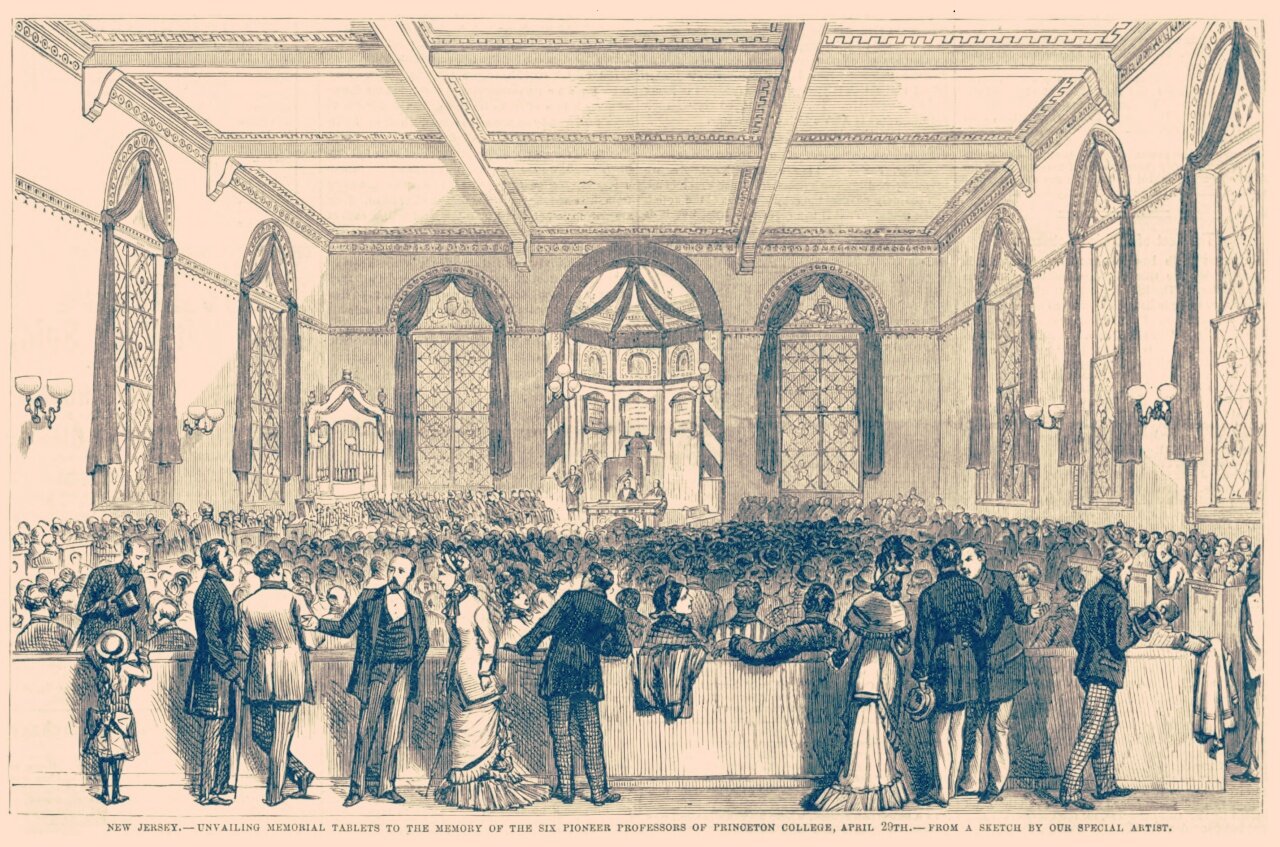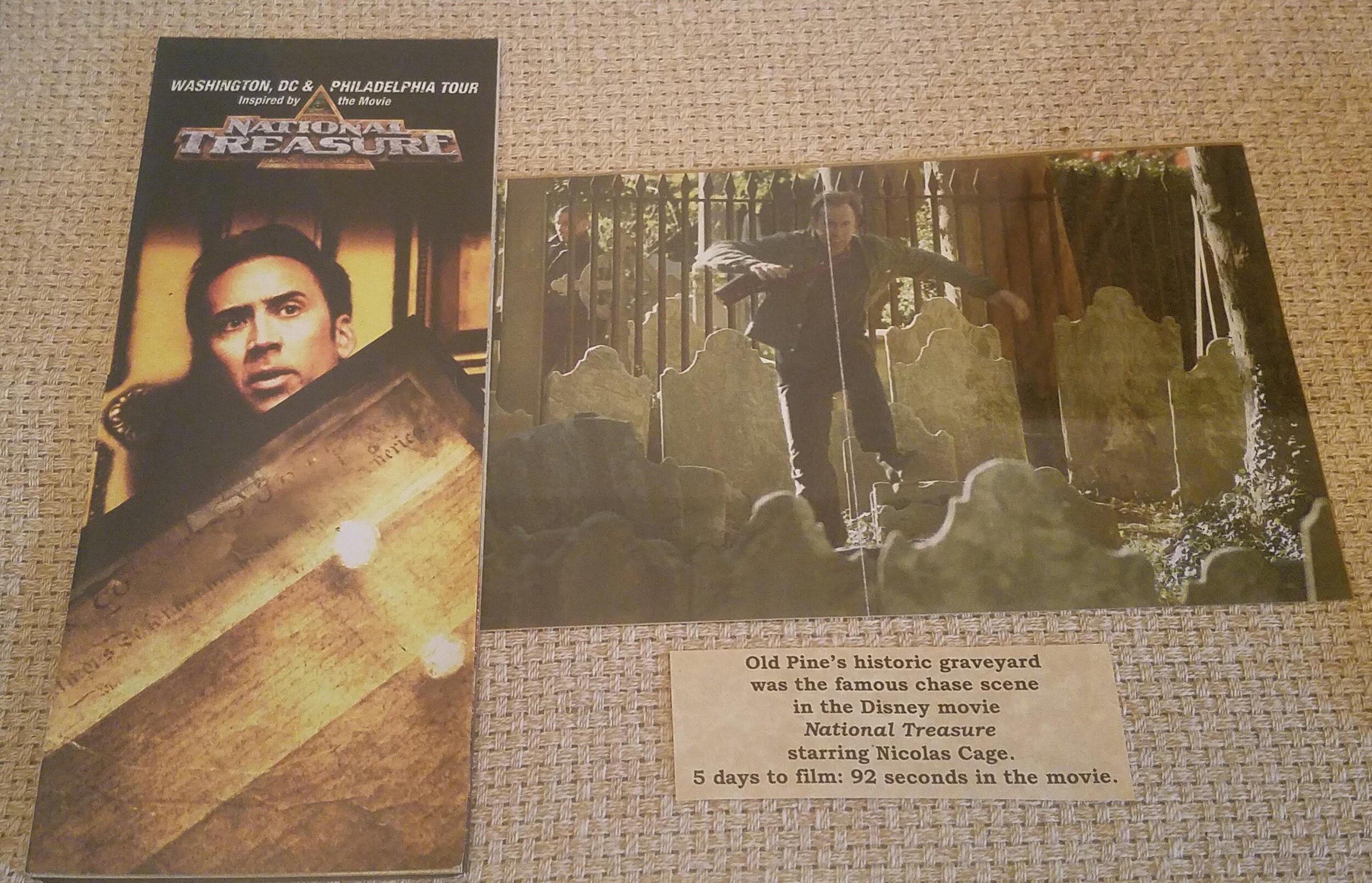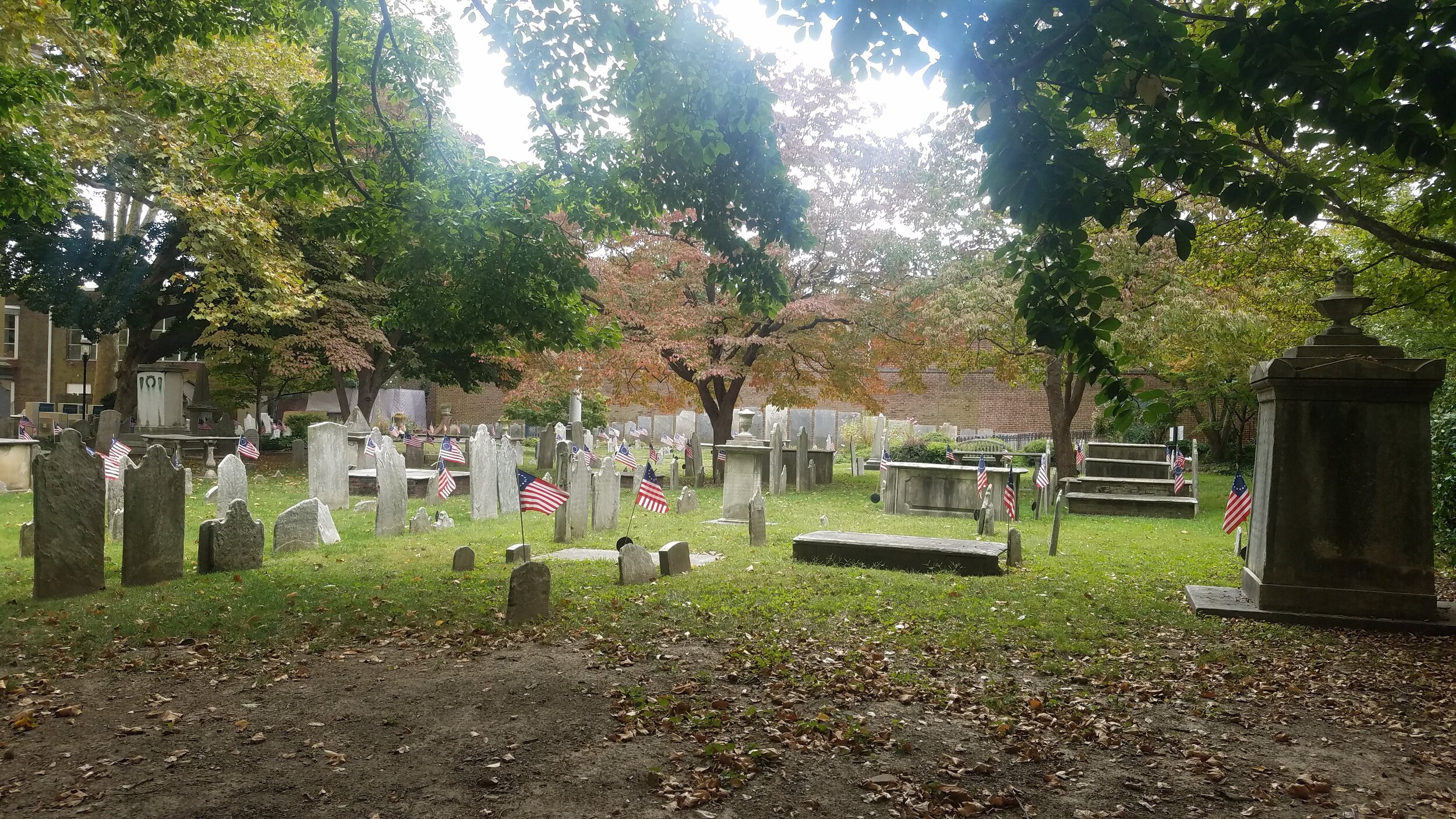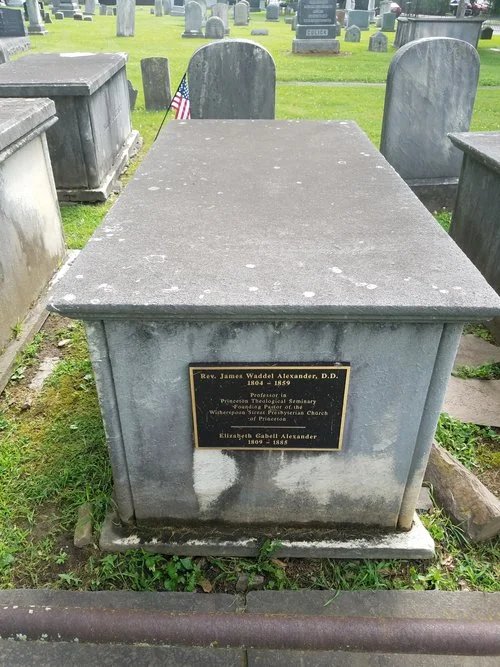(Receive our blog posts in your email by clicking here. If the author links in this post are broken, please visit our Free PDF Library and click on the author’s page directly.)
When Charles Hodge entered into glory in 1878, it seemed that one chapter in the history of Princeton had closed, and a new one was beginning. The following year, a memorial in honor of Hodge, Samuel Miller and the Alexanders was dedicated at Miller Chapel, and a book was published to commemorate the occasion, The Alexander Memorial (1879), of which we have written before. Today’s post concerns another volume published in 1879, The Princeton Book, “by officers and graduates of the college,” which is a remarkable and comprehensive look at the history and scope of Princeton’s legacy.
The Princeton Book has recently been added to our Compilations page. It is a volume filled with information about the founding of Princeton, both the college and the seminary, its relationship to church and state, the courses of study and activities conducted at Princeton, including science and athletics, the layout of the campus, the cemetery, the surrounding town, and much more. Each section is written by those with experience and knowledge of the topic, and a love of the institutions represented. It is a valuable snapshot in time (complete with many photographs and maps), as well as a look backward in time to inform readers of a rich heritage that belongs to Princeton and its people. The table of contents below will help today’s reader to better understand what this remarkable volume is all about.
I. Historical
History of the College of New Jersey by William Henry Hornblower
College Presidents by William A. Packard
Princeton and the Church by Henry J. Van Dyke
Princeton and the State by Henry J. Van Dyke
Princeton and Science by S.B. Dod
Princeton and Literature by William M. Baker
II. Organization
Course of Study in the Academical Department by James McCosh
The Faculty by Addison Atwater
The Treasurer by William Harris
The Librarian by Frederic Vinton
Commencement Day by Henry Alfred Todd
The American Whig Society by H.C. Cameron
Cliosophic Society by Melancthon W. Jacobus
The Philadelphian Society by John Thomas Duffield
The Nassau Hall Bible Society by George Sheldon
The St. Paul’s Society by Arthur B. Turnure
Class Meetings and Alumni Associations by George W. Sheldon
III. Buildings
Nassau Hall by John P. Campbell
Dickinson Hall by Edward D. Lindsey
The College Chapel by Lyman Hotchkiss Atwater
The College Library by Frederic Vinton
The Halsted Observatory by Stephen Alexander
The Working Observatory by C.A. Young
The Museum of Geology and Archaeology by Arnold Henry Guyot
The Gymnasium by Allan Marquand
Witherspoon Hall by William Harris
Reunion Hall by William Harris
East and West Colleges by William Harris
IV. The School of Science
The John C. Green School of Science by Henry B. Cornwall
V. The Theological Seminary
The Theological Seminary by George T. Purves
Library of the Theological Seminary by Wm. H. Roberts
VI. The Town
The Battle of Princeton by James C. Moffat
The First Church by Lyman Hotchkiss Atwater
The Princeton Graveyard by William Brenton Greene, Jr.
Tusculum by William Brenton Greene, Jr.
Morven by Bayard Stockton
Prospect by Bayard Stockton
Trinity Church by Bayard Stockton
Ivy Hall by Bayard Stockton
The University Hotel by William Harris
VII. Miscellaneous
On the Campus by Henry J. Van Dyke, Jr.
College Oratory by Simon J. McPherson
The Princeton Journals by Henry F. Osborn
Glee and Instrumental Clubs by Alfred L. Dennis, Jr.
History of Base Ball by Wilton Merle Smith
Foot-Ball by David Stewart
Athletic Notes by Allan Marquand
VIII. Statistics by William B. Scott
I. Statistics of Professions of Graduates
II. List of Presidents and Professors
Those interested in the history of “the legitimate successor of the celebrated ‘Log College’ at Neshaminy, Pennsylvania, and of several other schools of the prophets” (Henry Van Dyke), will find much in this volume to reward their study. The Princeton Book is a valuable resource indeed and can be read here.


























